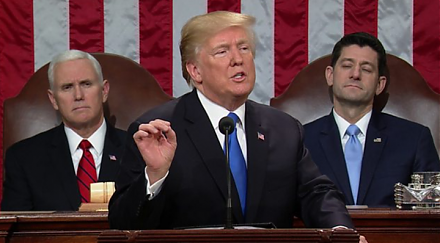

2018-06-17 10:35:00 Sun ET
federal reserve monetary policy treasury dollar employment inflation interest rate exchange rate macrofinance recession systemic risk economic growth central bank fomc greenback forward guidance euro capital global financial cycle credit cycle yield curve
In the past decades, capital market liberalization and globalization have combined to connect global financial markets to allow an ocean of money to flow through them. In emerging-economies, the gross foreign financial position can be as large as annual GDP. In rich economies, the ratio can rise even more. Given the sheer size of cross-border capital flows, these co-movements can have enormous effects on local economic conditions.
The capital flows across borders is good since financial openness allows investors in rich countries to seek out large returns in capital-scarce emerging-economies. Yet, capital flows may not always follow this peculiar pattern. Money can often flow in the other direction. Less mature emerging-economies often save to safeguard against fickle global financial markets and hence amass large quantities of foreign-exchange reserves. This global savings-glut suggests that an ocean of money can swamp individual economies. The U.S. Federal Reserve determines the turn of the tide. American monetary policy shapes the global appetite for risk because of the dollar's exorbitant privilege in global finance. When the Fed changes course, asset prices, returns, and market volatilities move in its wake, with all sorts of inadvertent consequences for other countries.
Most economies face a fundamental dilemma: these economies can choose open capital markets to attract the foreign investment that emerging markets need to reinvigorate their economic climate, but only if these economies can accept losing domestic control over the global business cycle. For many emerging-economies, this inexorable trade-off seems to be a fair price to pay in global finance. However, when the Fed eventually raises its interest rate, the trade-off will then tilt toward a capital exodus from emerging-economies back to America. When push comes to shove, the law of inadvertent consequences counsels caution.
If any of our AYA Analytica financial health memos (FHM), blog posts, ebooks, newsletters, and notifications etc, or any other form of online content curation, involves potential copyright concerns, please feel free to contact us at service@ayafintech.network so that we can remove relevant content in response to any such request within a reasonable time frame.
2018-03-09 08:33:00 Friday ET

David Solomon succeeds Lloyd Blankfein as the new CEO of Goldman Sachs. Unlike his predecessors Lloyd Blankfein and Gary Cohn, Solomon has been an investmen
2016-10-01 00:00:00 Saturday ET

We can learn much from the frugal habits and lifestyles of several billionaires on earth. Warren Buffett, Chairman and CEO of Berkshire Hathaway, still l
2026-01-31 10:31:00 Saturday ET

In recent years, several central banks conduct, assess, and discuss the core lessons, rules, and challenges from their monetary policy framework r
2021-08-01 07:26:00 Sunday ET

The Biden administration launches economic reforms in fiscal and monetary stimulus, global trade, finance, and technology. President Joe Biden proposes s
2018-01-29 07:38:00 Monday ET

President Donald Trump delivers his first state-of-the-union address. Several key highlights touch on economic issues from fiscal stimulus and trade protect
2022-02-25 00:00:00 Friday ET

Empirical tests of multi-factor models for asset return prediction The capital asset pricing model (CAPM) of Sharpe (1964), Lintner (1965), and Bla